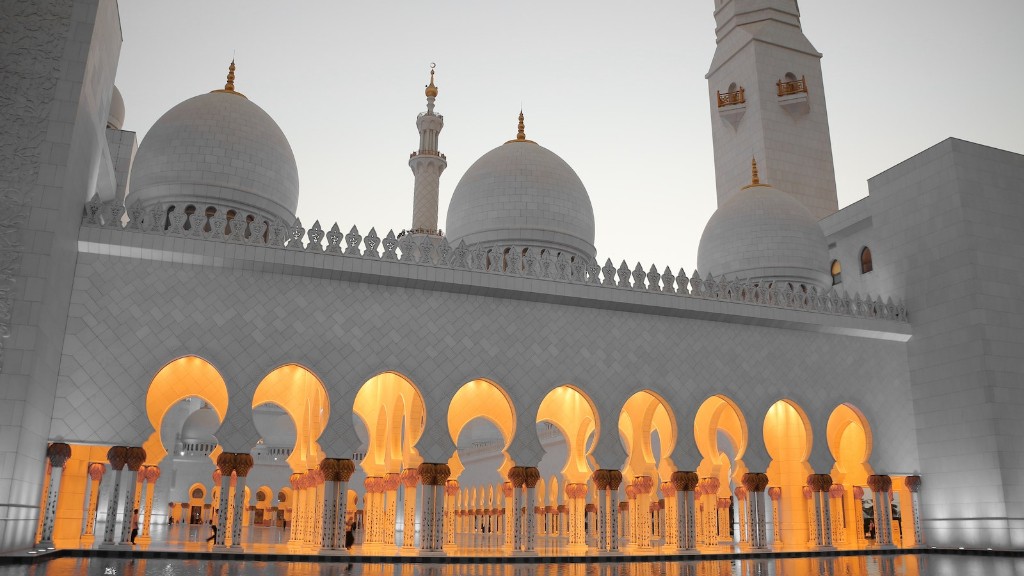Hinduism is one of the world’s oldest and most widely practiced religions. Shiva is an important figure in Hinduism and is widely revered and worshipped by Hindus across the world. He is seen as the embodiment of divinity, power and knowledge and is one of the three primary gods – alongside Brahma and Vishnu. Shiva has been venerated for centuries and has become a central part of the Hindu tradition and culture.
Shiva is believed to be the most powerful deity in the Hindu religion and he is seen as the destroyer and regeneration of the universe. He is the god of transformation and is believed to represent the endless cycle of life, death, and regeneration. Shiva is also seen as the guardian and protector of the universe. Hindus believe that Shiva can be seen in all of creation and is present in both the natural and spiritual realms. Shiva is also seen as the lord of yogis and is venerated by many practitioners of yoga.
Shiva is said to have many different forms, each of which has a unique set of attributes and powers. His most recognizable forms are his Shaivite and Rudra form. The Shaivite form of Shiva is associated with creation, while the Rudra form is associated with destruction. He is also associated with various weapons such as the trident, drum, and axe. Shiva is also associated with various philosophical doctrines and teachings like Advaita Vedanta and Mahayana Buddhism. Shiva’s teachings are generally focused on liberation from worldly attachments and creating harmony between the spiritual and material worlds.
Shiva is famously depicted with the third eye in which he is able to see beyond the physical realm and behold divine truth. Hindus believe that when merged with Shiva, the individual becomes part of divine consciousness and can experience eternal bliss. Shiva is also considered to be the god of meditation and inner peace, which can again be experienced through devotees dedicating themselves fully to him.
Shiva is revered by Hindus due to his role as the destroyer and regenerator of the universe and his ability to aid in the liberation of souls. Many Hindus make pilgrimages to holy sites associated with Shiva and congregate to pay homage to him through ritual worship and chanting. Shiva is also seen as a guardian and protector of the Hindu community, and devotees may call upon his power to protect from illness, misfortune, and malevolent forces.
Role Of Shakti
Shiva and his consort Shakti form the divine union that is the basis of the universe in Hinduism. Shakti is the embodiment of female energy, power and strength. Shiva and Shakti represent the polarities of the universe; male-female, dark-light, consciousness-unconsciousness, mind-body. Shiva and Shakti are seen as complimentary forces that work together in perfect balance to bring about harmony and equilibrium in the universe. This duality can also be found in the many tantric practices of Hinduism.
It is believed that without Shakti, Shiva has no power and is not able to create or destroy. It is only through the union of the two divine entities that creation and destruction can take place. Shakti is also often seen as a symbol of fertility and rebirth. Hindus believe that Shakti has the power to bestow children, wealth, and health upon those who venerate her. Thus, Shiva and Shakti are seen as essential components in the cosmic cycle of existence.
Impact Of Shiva
The impact of Shiva on Hinduism cannot be overstated, as he is one of the most important figures in the faith. Shiva’s influence can be seen throughout the Hindu culture, from his many festivals to his veneration in art, literature, and mythology. He is seen as a powerful form of divine energy and through worship and devotion, Hindus can access a connection to divine consciousness and experience the peace, love, and liberation that this connection brings.
Many Hindu religious ceremonies, rituals, and festivals incorporate elements of Shiva’s symbols and worship. From the Maha Shivaratri festival to holy pilgrimages and processions, Shiva’s influence pervades many aspects of Hinduism. Many Hindu temples are also dedicated to Shiva, such as the famous Tirupati Temple in Tamil Nadu and the temple at Varanasi in Uttar Pradesh. Hindus throughout the world participate in spiritual practices such as chanting, meditating, and prostrating in the presence of Shiva.
Reasons For Revering Shiva
Many Hindus revere Shiva due to his role in the cycle of life and death, his ability to bestow liberation and spiritual awakening, and his many forms and associations. Shiva is seen as the embodiment of power and knowledge, and his influence and teachings have helped to shape many aspects of Hinduism. He is also seen as an important source of comfort and protection for the Hindu community. Through devotion to Shiva, Hindus are able to access a connection to divine consciousness, experience inner peace, and pursue liberation from the cycle of rebirth.
Conclusion Of Shiva’s Role In Hinduism
Shiva’s role in Hinduism is central and of great importance, as his veneration is an integral part of the faith. For many Hindus, worship of Shiva brings about major spiritual and psychological benefits. Shiva is beloved by many for his ability to transform, protect, and provide guidance. Through devotion to him, Hindus can experience liberation, peace, and a merging with the divine consciousness.
Understanding Shiva Through His Legends
Some of the most significant stories associated with Shiva are found in Hindu mythology. Shiva’s legend tells of his battles with demons and gods, and his love affairs with goddesses like Vishnu’s consort, Shakti. These stories help to demonstrate aspects of Shiva’s nature, such as his power, strength, playfulness, and compassion. Understanding these legends can aid in learning more about Shiva’s teachings and Hinduism in general.
Symbolic Representation Of Shiva
The various symbols and idols associated with Shiva can be seen as a reflection of his many faces and represent aspects of his personality and the Hindu religion. The trident, for example, is seen as a symbol of his power and authority, while the drum is a representation of his creative energy. The bull is a symbol of fertility, and Shiva’s third eye symbolizes inner vision and awareness. Other symbols associated with Shiva include the snake, the conch shell, and the crescent moon.
Interpretation of Shiva’s Mysterious Nature
The mysterious nature of Shiva is an integral part of his character, and it has captivated Hindus for centuries. Many of his teachings are shrouded in ambiguity, and his nature is open to interpretation. Shiva is said to represent the cycle of life, death, and rebirth, and his ability to destroy and create. The mysteries of Shiva provide a platform for discussion and exploration of Hindu beliefs and practices.
Interconnection With Animals
In Hinduism, Shiva is often seen represented in forms such as the Nandi bull. For example, Hindus in some regions venerate the cow as a symbol of fertility and abundance, as Shiva is often represented riding a bull. The veneration of animals is also seen in many Hindu rituals and festivals, such as in the celebration of Makar Sankranti. Here, Hindus honor their connection to animals and the natural world, and their reverence for Shiva.
Inclusion Of Shiva In Dance And Music
The influence of Shiva can also be found in many classical and folk dances in the Hindu community. Shiva’s character, his attributes, and his many forms are often depicted and represented through movements in classical Indian dances, as well as in folk performances. Shiva can be heard in many Hindu musical compositions, in terms of lyrics, tunes, and musical instruments such as the lute, flute, and cymbals. Music and dance are powerful means through which Hindus access and experience devotion to Shiva.



